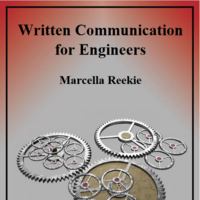Search
Books+
Searching 1,730 books
Search related to the career Aeronautical Engineer
Essential Skills for Aeronautical Engineers:
1. Mathematical Proficiency: A strong foundation in mathematics is crucial for aeronautical engineers to solve complex equations and perform calculations related to aerodynamics, control systems, and structural analysis.
2. Physics Knowledge: A deep understanding of physics principles, including mechanics, thermodynamics, and fluid dynamics, is essential for designing and analyzing aircraft components and systems.
3. Computer Skills: Proficiency in computer-aided design (CAD) software is necessary for creating and modifying aircraft designs. Additionally, knowledge of programming languages and simulation software is valuable for modeling and analyzing aircraft performance.
4. Problem-Solving Abilities: Aeronautical engineers must possess strong problem-solving skills to identify and resolve technical issues related to aircraft design, performance, and safety.
5. Attention to Detail: Precision and attention to detail are critical in aeronautical engineering to ensure accurate calculations, precise measurements, and adherence to safety regulations.
6. Analytical Thinking: Aeronautical engineers need to think analytically to evaluate data, interpret test results, and make informed decisions during the design and development stages of aircraft.
7. Communication Skills: Effective communication skills, both written and verbal, are essential for aeronautical engineers to collaborate with team members, present findings, and explain complex technical concepts to non-technical stakeholders.
8. Teamwork: Aeronautical engineers often work in multidisciplinary teams, so the ability to collaborate, share ideas, and work effectively with others is crucial for successful aircraft design and development.
9. Knowledge of Regulations: Aeronautical engineers must be familiar with aviation regulations and standards to ensure compliance with safety guidelines and legal requirements.
10. Continuous Learning: Aeronautical engineering is a rapidly evolving field, so a willingness to stay updated with the latest advancements, technologies, and industry trends is essential for professional growth and innovation.
Source: Various AI tools
Vocational skills
Searched in English.











